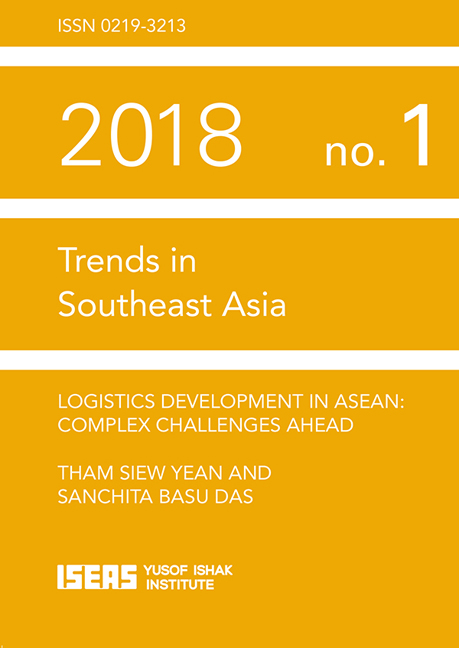
- Publisher:
- ISEAS–Yusof Ishak Institute
- Online publication date:
- February 2019
- Print publication year:
- 2018
- Online ISBN:
- 9789814818087
- Subjects:
- Economics, Economics: General Interest
- Series:
- Trends in Southeast Asia
Online ordering is currently unavailable due to technical issues. We apologise for any delays responding to customers while we resolve this. For further updates please visit our website: https://www.cambridge.org/news-and-insights/technical-incident


Growing urbanization, increasing trade and investment due to integration, and emerging new business models like e-commerce are accelerating the demand for efficient logistics in each ASEAN country. The logistics sector is inherently complex due to its scope, ranging from physical infrastructure covering four modes of transport, customs, and services. Each of these sub-sectors is regulated by different government agencies, leading to complex challenges in each country's logistics sector. Policymaking has a tendency to be done piecemeal rather than integratively, while a more or less fragmented governance structure impedes implementation. ASEAN liberalization commitments focusses on raising the cap on foreign equity, while regulatory reform remains untouched. Also, flexibility offered in these commitments allows for non-compliance. Going forward, developing seamless logistics requires ASEAN countries to first overcome their domestic challenges. Each country needs to develop comprehensive plans, and effective implementation of these is essential. Liberalization commitments should complement domestic reforms in each country.
 Loading metrics...
Loading metrics...
* Views captured on Cambridge Core between #date#. This data will be updated every 24 hours.
Usage data cannot currently be displayed.